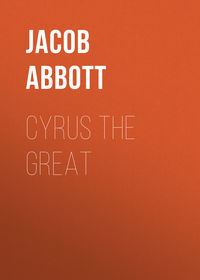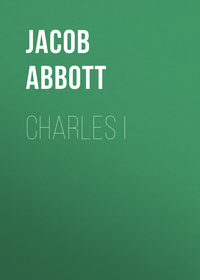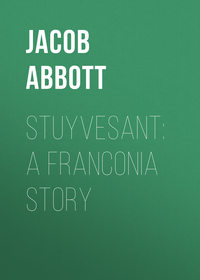
Jonas on a Farm in Winter
"Now," said Jonas, after a few minutes, to Oliver, "I am going away farther, and shall come back here in about an hour. You may go with me, or you may stay here,—just which you prefer."
"Well," said Oliver, "I'll stay here."
"Good-by, then," said Jonas; "I shall be back again in about an hour."
So Jonas went down stairs, and Oliver began to walk about the room a little. There was a window in the back side of the room, which he happened to pass pretty near to, and he stopped to look out at it. He saw the dam and the waterfall below. There was a large pond above the fall, which was made by the dam. The pond was frozen over, and the ice was covered with snow. The water was open for a short distance above the edge of the fall, and it was also open below the fall, where there was a great foaming, and tumbling, and whirling of currents.
Oliver looked at it a moment, and then he concluded that it would be better for him to go with Jonas.
"I have seen," said he to himself, "pretty much all of the machinery, and I shall be very tired of waiting here an hour."
So he concluded that he would run down, quick, and see if Jonas had gone.
When he got down stairs, and out at the door, he found that the sleigh was not at the post. He ran around the corner, and saw Jonas at some distance, just at the foot of a hill. He ran after him, calling, "Jo-nas! Jo-nas!"
Just at this time, Jonas stopped to let his horse walk up the hill, and so he heard Oliver calling; for the bells did not make so much noise when the horse was walking, as they did before.
So Jonas stopped until Oliver overtook him; and they went on the rest of the way together.
CHAPTER IX. DIFFICULTY
Although it was winter when the boys were taking this ride, yet the sun was shining in a very warm and pleasant manner, and the snow was every where softening in the fields and melting in the roads, indicating that the spring was coming on.
There was a little stream of water, coming down the hill in the middle of the road, and forming a long pool at the bottom. Jonas turned his horse to one side, to avoid this pool of water, and waited until Oliver came up.
"Well, Oliver," said he,—"tired of the mill already?"
"Why, no," said Oliver, "only I thought that, on the whole, I'd rather go with you. I didn't think that you were going to be gone so long."
"It is about two miles," said Jonas.
"Where are you going?" said Oliver.
"O, to see about some logs. I thought you heard your father tell me to go and see about some logs."
"What about the logs?" said Oliver.
"Why, to make the boards of, for the barn."
"O," replied Oliver, "I didn't know that."
"Yes," continued Jonas, "when we want boards, we have to go to somebody who owns some pine timber in the woods, and get him to cut down some of them, and haul them to the mill. Then they saw them up, and make boards."
"What mill?" said Oliver.
"At that saw-mill near the carding-mill. The mill down in the village, you know, is a grist-mill."
By this time, the boys had got to the top of the hill, and they got into the sleigh, and rode along. Presently, they came to a place where Jonas was going to turn off, into a sort of by-road which led away into the woods, where the pine-trees grew. The man that owned the trees lived pretty near, in a farm-house.
"Is that the road that we are going in?" asked Oliver.
"Yes," said Jonas, "but it does not look very promising."
The road was filled up nearly full of snow. It had been hard, so that they could travel upon it pretty well; but the warm sun had softened the snow so much, that the horses' feet sunk down into it, in some places, very deep. However, Jonas went along as well as he could.
"Let us get out and walk, Jonas," said Oliver.
"No," said Jonas, "that will not do much good; for it is the weight of the horse himself, that makes him sink into the snow, not the weight of the sleigh."
So the boys both continued to ride in the sleigh. They soon came into the woods, where, the ground being sheltered by the trees above, the snow lay more evenly upon it; and, though the horse slumped a little, yet he got along very comfortably.
At length, however, they came out of the woods into an opening. The road went along under a high bank, with a deep brook on the other side. The wind, during the storms in the winter, had blown in over this bank, and filled up the road entirely.
"Now," said Jonas, "I am afraid we're in difficulty."
"Why?" said Oliver; "is that a very bad place?"
"Yes," said Jonas, "it looks like a very bad place."
Oliver saw that the snow was very deep on the upper side of the road, and that it sloped away in such a manner that it would be very difficult for them to get along, even if the road-way was hard.
"Perhaps it is hard," said Oliver.
"No," said Jonas, "I think it cannot be, for the bank slopes to the south, and the sun has been shining upon it all day. However, we must try it."
The horse hesitated a moment when he came to this place, for he knew by instinct that it would be very hard for him to get through it.
"Come, General," said Jonas. "Though, stop a moment, Oliver; perhaps we had better get out and walk, or the sleigh may upset."
So they got out. Oliver walked by the horse, keeping on the upper side of the road. Jonas went behind, taking hold of the back part of the sleigh, so as to hold it in case it should tip down too far. They went on thus for some distance tolerably well. The horse sometimes got in pretty far, and for a moment would plunge and stagger, as if he could hardly get along; but then he would work his way out, and go on a little farther.
At length, however, the old General came to a full stop. He sank down, shoulders under, in the snow. The more he struggled to get free, the deeper he got in. Jonas stepped on before him, and patted him on the head, and tried to quiet him.
"Jonas," said Oliver, "let us stop; I don't believe we can go any farther."
"Nor I," said Jonas. "At least I don't think we can get the old General any farther."
"Nor back again either," said Oliver, "as I see."
The boys stood still, looking upon the horse a moment, utterly at a loss what to do.
"Oliver," said Jonas, "should you be willing to stay here and take care of the horse, while I go on and see about the logs?"
"Why—I—don't know," said Oliver. "I'm afraid he won't stand quiet."
"O, I shall get him out of the snow, first," said Jonas, "and take him to some level place, where he'll stand well."
"How shall you get him out?" asked Oliver.
"Why, we will unharness him first," said Jonas, "and then draw the sleigh back out of the way."
So Jonas began to unbuckle the straps of the harness, in order to liberate the horse. Oliver tried to help him, but he could not do much, the horse was so deep in the snow. And, besides, he was standing, or rather lying, in such a position, that many parts of the harness were drawn so tense, that Oliver had not strength enough to unbuckle them.
However, Jonas at length got the sleigh separated from the horse, and drew it back out of the way. He trampled the snow down around the horse, as much as he could, and then the horse, with a leap and a plunge, recovered his footing. He stood deep in the snow yet, however.
"Now," said Jonas, "where shall we put him till I come back?"
Oliver looked across the brook, and saw there, upon a bank, under some trees, a spot which was bare. The reason why it was bare was, that the snow had nearly all blown off during the storms; and then the sun, which had been shining for some days so pleasantly, had melted away what there had been left; and now the ground was bare, and almost dry. But the difficulty was to get to it; for it was upon the other side of the stream, and the bed of the stream was filled with water and ice.
"I wouldn't lead him over there," said Oliver. "I think you had better go home, and not do any thing about the timber."
"No," said Jonas.
"Why, father will not think you did wrong to give it up, when we got into such trouble," said Oliver.
"No, I don't suppose he would; but I'd rather carry him back an answer, if I can."
"Then let me go with you," said Oliver.
"Why, it is a long and very hard walk," said Jonas. "There is no work so hard as travelling in soft snow, without snow-shoes. If we had a pair of snow-shoes, we could get along very well."
"Did you ever see any snow-shoes?" said Oliver.
"No," replied Jonas, "but I have read about them. They are very large and flat, and your foot stands in the middle of them, and so presses them upon the snow; and they are so large that they will not sink in very far."
While Jonas was saying this, he was climbing down to the bank of the brook, with a pole in his hands, with which he was going to see if he could find firm footing, for the horse to go across.
"Yes," said he, punching his pole down to the bottom of the brook; "yes, it isn't deep. The old General will get down here very well, I think."
So he and Oliver trampled a sort of path down to the brook, and then they led the old General down. He seemed a little reluctant, at first, to step into the water. However, he soon went in, and walked over, and Oliver fastened him to a tree, so that he could stand upon the bare piece of ground. Jonas then pulled the sleigh out of the road, so that it should not be in the way, if any body should come along with any other team; then he bade Oliver good-by, and went on alone.
Jonas traveled along, as well as he could, through the snow, though he found it very laborious walking. In some places, he found hard footing for some distance; but then he would sink down again for several successive steps. After a short distance, he got out of the deep drift, which had prevented the horse from going on, and then he could advance faster. There was a singular-looking track in the road. It consisted of a smooth groove in the snow, as if the end of a large log had been dragged along.
It was, in fact, made by a log which had been drawn along that road towards the mill. One end of the log had been placed upon a sled, and the other left to drag along in the snow; and this was what made the smooth groove, which Jonas observed. He did not see it before, because the man who drove the sled had turned out of the main road, into a by-way across the fields, to avoid the deep drift where Jonas's horse got into difficulty.
Jonas found it pretty good walking after this. The snow was not so deep as it had been; and the path which the log had made was hard and smooth. He concluded that it must have been made by such a log, and, of course, if he followed it, that it would take him directly to the house of the man whom he wanted to see.
After walking about a mile, he came to the house. It was a small farm-house, in the woods. There were a great many large logs, lying each side of the road near it, ready to be drawn to the mill.
Jonas went up towards the door, which was in the end of the house. As he drew near to it, he saw a boy's head behind an enormous pile of wood. He went around it, and found that the boy was about as big as Jonas himself. He was rolling down a large stick of wood, and had an axe in his hand, as if he was going to chop it.
"Does Mr. Woodman live here?" said Jonas.
"Yes," said the boy; "but he isn't at home."
"Where is he?" said Jonas.
"He is out in the lot, falling trees," said the boy.
"How far is it from here?" asked Jonas.
"O, about a good half mile."
"Which way?" said Jonas.
"Out yonder," said the boy; and he pointed back of the house, where a rough sled-road led into the woods. "You can hear his axe."
Jonas listened, and he heard distinctly the sound of an axe in the woods behind; presently it ceased. Immediately after, there was a prolonged crash, which echoed back from the mountains.
"There goes a tree," said the boy.
Jonas was sorry to have to leave Oliver so long, but he wished to persevere until he should find the man, as he knew that the farmer was very desirous of having the business done that day. So he told the boy that he believed he would go and see if he could find Mr. Woodman; and then he set off in the direction which the boy had indicated.
This road was so sheltered by the woods, that the snow was not much drifted; and, besides, it had been kept open by the teams, which had been employed in hauling out pine logs. When Jonas got in to the end of the road, he heard the strokes of the axe, at a short distance on the right.
He looked that way, and found that the man was standing at the foot of a tall tree, of very large size; and he was cutting through the trunk of it, about two feet from the top of the snow. He saw that it was nearly off, and so he thought he would wait a moment, where he was, and see it fall. He observed that Mr. Woodman occasionally looked up the stem of the tree, between the strokes of his axe, as if to see whether it was beginning to fall.
After a few strokes more, he stepped back from the foot of the tree to one side. Jonas wondered why he left his work before the tree fell. He looked up to the top of it, and he perceived that it was moving. It was bending over very slowly indeed. It moved, however, faster and faster, and presently began to come tearing down between the branches of the other trees, and, at length, descended with a mighty crash to the ground. Jonas thought that it was a very fine spectacle indeed. He wished that Oliver had been there to see it.
Jonas then went to Mr. Woodman, and transacted his business successfully, according to the farmer's directions. Then he turned around, and began to walk back, as fast as he could go.
"I am afraid," said he to himself, "that Oliver is almost out of patience waiting for me."
CHAPTER X. A SURPRISE
Jonas walked on until he came out of the woods, at the house where he had seen the boy cut wood. As he approached the place, he saw that the boy was there still; but there was a man with him. The man had a goad-stick in his hand.
"He is driving a team somewhere," said Jonas to himself. "I wonder where his oxen are."
A moment afterwards, Jonas came in sight of the oxen, which were in the road, having been hid from his view before, by the wood pile.
The man and the boy looked at Jonas, as he walked towards them. The man smiled a little, as if he knew Jonas; but Jonas thought that he had never seen him before.
"Well, Jonas," said the man, "did you find Mr. Woodman?"
"Yes, sir," replied Jonas. He wondered how the man happened to know his name.
"I'm glad of it," said he; "and you'd better make haste back. Rollo is almost tired of waiting for you."
"Oliver, you mean," said Jonas.
"No," said the man,—"Rollo; he said his name was Rollo."
"Rollo?" said Jonas; "his name is Oliver. I don't see what made him tell you that his name was Rollo."
So saying, Jonas walked thoughtfully away, wondering what this could mean. He had never known Oliver to do any such thing before. Oliver, he thought, would not tell a falsehood on any account. He was not inclined to say any thing of that kind by way of jest. He was a very sober and sedate, as well as honest boy. Besides, he could not think what should have put Rollo into Oliver's head. He did not recollect that he had said any thing of Rollo for a long time. In fact, he had seldom told Oliver any thing about him; and what could have induced him to call himself Rollo, he could not conceive.
However, he had nothing to do but to go on, for the more he attempted to imagine some explanation of the mystery, the more he was puzzled. So he walked on as diligently as he could.
He came, at length, in sight of the spot where he had left the horse and Oliver. The horse was there, but Oliver was not to be seen.
"He has got tired of waiting, and has gone away," said Jonas; "or perhaps he is playing about near."
This last supposition was pretty soon, for a moment, confirmed; for Jonas saw, very soon after, a boy's head on the bank of the brook, at a little distance below.
"There he is now," said Jonas to himself. "No, it isn't he. That boy isn't dressed like Oliver. I wonder who it is."
The boy had a long pole in his hand, and was pushing cakes of ice with it. He was so intent upon this amusement, that at first he did not see Jonas; but, presently, looking up, his eye suddenly caught a view of Jonas, coming, and he instantly dropped his pole, and ran towards him, shouting,—
"Jonas!"
"Why, Rollo!" exclaimed Jonas, in his turn. "How came you to be here?"
It was Rollo, indeed. Jonas was astonished. He could scarcely believe his senses. "Is it possible that this is you?" said he.
"Yes," said Rollo, laughing with great delight, "I believe it is."
"And how came you here? I left Oliver here an hour ago, little thinking that he would turn into Rollo while I was gone."
"Oliver?" said Rollo, "who is Oliver?"
"Why, don't you know Oliver?" said Jonas. "He is the farmer's son. He came with me, and I left him here to the care of the sleigh. Haven't you seen any thing of him?"
"No," replied Rollo, "nothing; there was nobody here when I came."
"What can have become of him, then?" said Jonas. "I hope he is not lost in the woods."
So saying, Jonas began to call aloud, "Oliver! Oliver!" But no Oliver answered.
"Let us see if we can find any tracks," said he; and he and Rollo began to look about for tracks.
"What's this?" said Rollo, looking down intently upon the snow, pretty near where the horse had been tied.
"Any tracks?" said Jonas.
"No," said Rollo, "but some writing in the snow."
So Rollo began to read the writing in a slow manner, as he walked along from one word to another; for, the letters being large, the sentence extended quite a distance from where it first attracted his attention. He read as follows:—
"'Jonas,—I—am—tired of writing,'—no, 'waiting. I am going—back—to—the—mill.'"
"Let me see," said Jonas.
So Jonas came to the place, and saw the writing. Rollo had read it correctly.
"Yes," said Jonas, "he has gone back to the mill, no doubt. We will go, and we shall find him there;—but when did you come from home? and how did you find where I was?"
Rollo, in answer to Jonas's question, explained to him that his father had given him permission to take the horse and sleigh and Nathan, and come and pay Jonas a visit. He had arrived at the farmer's that day, just after Jonas and Oliver had set out. The farmer told them where Jonas had gone, and he was very desirous of going after him. He said that he had no doubt that he could find him.
The farmer had hesitated a little; but finally he gave his consent, and Rollo set off, leaving Nathan at the farmer's, as he was rather tired. He had followed Jonas to the mill, and then he inquired of the people whether Jonas had been there. A man in the road told him that he had seen Jonas ride away on a certain road; and so Rollo had followed on in the road pointed out to him, as he knew that it was not far that he was to go.
When Rollo had got so far in his story, Jonas interrupted him to ask,—
"Were you on foot, Rollo?"
"No," replied Rollo, "in my sleigh."
"And where is your sleigh?" asked Jonas.
"Why, I left it out here a little way. When I found that the snow was deep, and my horse slumped in pretty bad, I left him by the side of the road, and walked on to see if I could see any thing of you. I soon found your sleigh, run out of the path, and the horse tied under a tree over the brook. So I knew that you couldn't be far off."
"And you did not go any farther."
"No," said Rollo; "I thought it would be better for me to stay by the sleigh, and wait for you."
Jonas asked Rollo a great many questions about all the people at home—his father and mother, and his cousin Lucy; and he said that he was very glad indeed, that Rollo had come to see him.
"Do you have a pretty good time upon the farm?" said Rollo.
"Yes," said Jonas, "very good indeed. You would like to be here very much."
"Are there any boys for me to play with?" said Rollo.
"Yes," said Jonas, "there is Oliver, though he don't play much. He works nearly all the time. But then there is Josey, though he has gone home now."
"I saw a boy at the mill," said Rollo, "when I came along. I verily believe it was Oliver."
"How big was he?" asked Jonas.
"O, about as big as I am," said Rollo.
"And what was he doing?" said Jonas.
"O, he was playing about on the rocks, under the falls. But he didn't seem to have much to do. He stopped and looked at me when I was coming by."
"Very likely it was he," said Jonas. "If he had only known who you were, he would have liked very much to have come along with you; and you would have been good company for each other.
"And O, Rollo," said Jonas again, very eagerly, "there's somebody you'll like very much indeed."
"Who is it?" said Rollo.
"Franco Ney," said Jonas.
"Franco Ney!" repeated Rollo; "I never heard a boy named Franco before. How old is he?"
"I don't know," said Jonas.
"Don't know? Well, where does he live?—at your house?"
"No," said Jonas. Jonas was correct in this answer, for Franco was accustomed to live in the barn.
After some other conversation, Rollo, suddenly looking up, said,—
"How far is it, Jonas, from your house to Mr. Ney's?"
Jonas laughed very heartily at this question, but gave no answer. Rollo could not imagine what he could he laughing at. Jonas, however, would not tell him, but said that he would know all about it, when he should come to see Franco Ney.
"Well," said Rollo, "I'll ask him why you wouldn't tell me where his father lives."
Very soon Rollo and Jonas arrived at the mill. They found Oliver safe there, waiting for them; and the rolls, too, were ready. As they did not like to tumble the rolls, Oliver rode with Rollo in his sleigh, and Jonas took care of the rolls.
Rollo was greatly astonished, as well as very much pleased, when he came to see Franco Ney.
CHAPTER XI. THE SNOW FORT, OR GOOD FOR EVIL
The next morning, after breakfast, Oliver proposed to Rollo, that they should go down to the pond, and build a snow fort. During the night, there had been a slight thaw, accompanied with some rain. The body of snow on the ground had become softened and adhesive by the moisture, and was, as Jonas said, "in prime condition for all sorts of snow work."
Oliver borrowed of Jonas the large wooden snow-shovel, with a blade nearly two feet square, used in cutting out the paths around the house. Rollo assisted him to strap it on the hand-sled, together with some boards, two iron shovels, and a hoe.
"The Conqueror"—for that was the name of his sled—"will have to be captive to-day," said Oliver, as he bound the load upon the sled, which he and Rollo were going to drag down to the pond.
"You had better take the garden-reel and line," said Jonas to Oliver, "if you intend to make a good fort. You will want to stretch your line so as to make the sides square, and to guide you in cutting out your blocks of snow."
"O, we don't want to be so particular as that," said Oliver.
"But I thought," said Jonas, "that your plan last evening was, to do your work in a workmanlike manner. If you want a substantial fort to last all winter, you must lay a good foundation, and cut your courses true, so that they will rest firmly one upon the other,—and especially if you are going to have a roof."
"We mean to have a roof," said Rollo, "or we cannot illuminate it in the evening."
"Well, then," said Jonas, "I advise you to take the line, and build according to rule."
Oliver had not forgotten what Jonas had often told him about doing his work like a workman.
"What is worth doing at all, is worth doing well" Jonas used to say.
So Oliver went to get the reel and line.
While he was gone to the tool-house, Rollo thought of Franco Ney, and began to call aloud, "Franco! Franco!"
Franco did not come.
"Franco! Franco—o! Franco—o! Where is Franco?" said Rollo; "we can't go without him."
"He won't mind you," said Oliver, as he came running back.
"You call him, then," said Rollo.
Oliver whistled the dog call, and in a moment, Franco came running from the poultry yard with a bone in his mouth, which he had been gnawing for a breakfast. At that moment, Nathan came running out of the door, with a luncheon in his hand for them all. The farmer's wife had put up in a paper an apple turn-over and a nut-cake for each of the boys, as they were going on so important an expedition.









